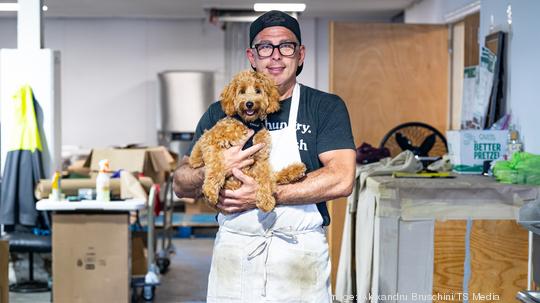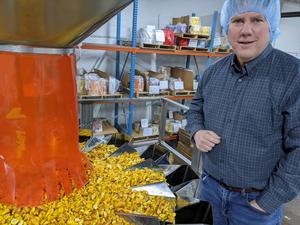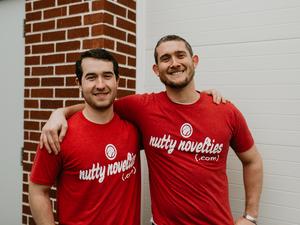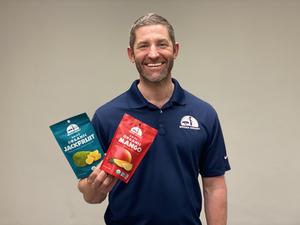
A $36 order several years ago proved one of several catalysts that changed Erik Senders’ and his wife Anna’s lives. As with that order, the couple never expected that adopting their dog Marley would dramatically alter their lives. But both events did and their Shih Tzu poodle mix ultimately provided them with a source of inspiration for their business, Mika & Sammy’s Gourmet Pet Treats.
The idea for the brand occurred to them in late 2014 when Senders began digging into the ingredients in commercial dog treats, especially chewing bones, finding that many were made with artificial flavors. That didn’t sit well and so he began making his own bones at home using a smoker. The treats were an immediate hit with Marley, who the couple had adopted as a way to help ease their son Sam’s fear of dogs after consulting with his health care providers.
Smelling the bones smoking at the Senders’ house, neighbors began to inquire and would soon ask for treats for their own dogs. Thinking they were on to something, Senders approached his friend at World Wide Aquarium and Pet in Philadelphia who agreed to stock the bones. After formalizing the business, Senders began looking at other local pet shops to stock the treats.
That’s when they landed that $36 order, their first from someone they didn’t already know. Though the dollar figure was nominal, it was enough for Senders to pursue Mika & Sammy’s – named for his and Anna's children – full-time, leaving behind his job in title insurance.
The ensuing years proved difficult, with the couple self-funding the endeavor, along with a little help from friends and family. “We struggled for a long time,” Senders recalled. “In the beginning, a lot of places wouldn't give us a chance.”
But like a dog with a bone, Senders was determined. In the earliest days of the business, he would drive upwards of 200 miles to reach potential retailers.
Today Mika & Sammy’s is stocked in approximately 700 stores across all 50 states. They have also expanded beyond dog bones to include jerky treats and chews, sourcing products from the U.S. In total, they have over 30 SKUs.
Once run out of their home, Mika & Sammy’s today operates from a facility in the Bridesburg neighborhood of Philadelphia and works with a smokehouse in New Hope. The company has nine full-time employees presently.
Sales skew heavily toward wholesale accounts, which make up between 65% to 70% of business. While the pandemic hurt many small businesses, that wasn’t the case for Mika & Sammy’s, which saw online sales grow 1,000%, Senders aid.
Prior to the Covid-19 outbreak, the company focused on wholesale and retail accounts but ramped up its digital presence when lockdowns began and consumer behavior shifted even more toward e-commerce.
Despite soaring inflation forcing the company to undertake its first price increases ever, Senders is still hopeful about the future and continued growth.
“[I want to] build on the foundation that we've already started,” he said. “[We’re] family owned and operated. The people that I have who work with us today, they're the people I want to set it up where they can all benefit from Mika & Sammy's as well. We wouldn't be where we are without the people who help us on a day-to-day basis.”
Have you considered expanding beyond dog treats?
We have, but we are focused right now on what we do best and right now we think we do dog treats and chews the best so that's where we're putting our attention.
How did the pandemic impact business?
The pandemic actually didn't hurt us in any way. What we decided to do was we did not have a presence online at all before the pandemic. When the pandemic hit, I became very nervous because everything was shut down. So we decided to focus on the internet and different avenues to generate business. … Internet sales have skyrocketed over 1,000%.
How is inflation impacting business?
Some of our distribution companies, they added fuel taxes. Not only is chicken breast up from when we started, it's more than double the price, almost about triple the price we initially were paying just for the chicken breast alone. And with all the other fuel, the shipping charges, everything is outrageous. … We did have to do some price increases, which we never did until the pandemic started.







